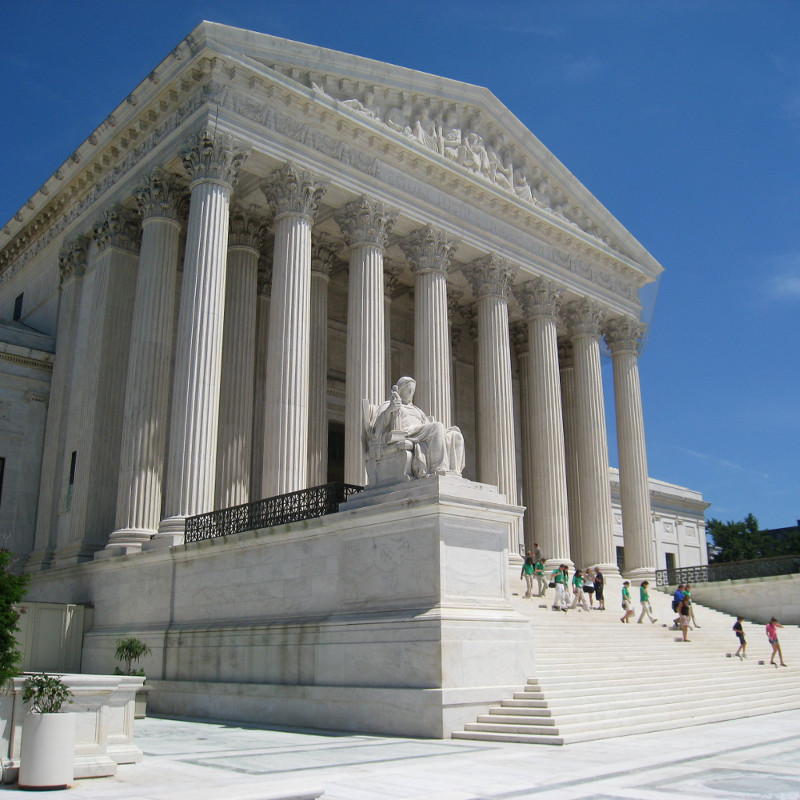Patient or Prisoner
Ji Seon Song 92 Geo. Wash. L. Rev. 1 Carceral power expands into many institutions vital to social life. This Article focuses on one such important institution: the hospital in the free world. Hospitals outside of carceral institutions routinely treat, diagnose, screen, and discharge people under law enforcement and correctional control. Just as hospitals serve... Read More
National Pork Producers Council v. Ross: A Win for Farmed Pigs
Joan E. Schaffner, Kathy Hessler, and Iselin Gambert examine the Supreme Court's decision in National Pork Producers v. Ross and its broader implications on animal welfare laws.
Central Bank Immunity, Sanctions, and Sovereign Wealth Funds
Ingrid Brunk 91 Geo. Wash. L. Rev. 1616 Central bank assets held in foreign countries are entitled to immunity from execution under international law. Even as foreign sovereign immunity in general has become less absolute over time, the trend has been toward greater protection for foreign central bank assets. As countries expand their use of... Read More
Admiralty’s Influence
Maggie Gardner 91 Geo. Wash. L. Rev. 1585 From the earliest days of the republic, the broad scope of admiralty jurisdiction brought foreign parties and foreign disputes into federal courts. In order to support the system of maritime commerce, federal judges sitting in admiralty could and did hear disputes with no U.S. parties that arose... Read More
The Political Question Doctrine and International Law
Curtis A. Bradley 91 Geo. Wash. L. Rev. 1555 Under the political question doctrine, some issues are deemed to be inappropriate for judicial resolution. The modern version of the doctrine is typically traced to the Supreme Court’s 1962 decision in Baker v. Carr, in which the Court listed six reasons why an issue might be... Read More
The Vesting Clauses and Foreign Affairs
Michael D. Ramsey 91 Geo. Wash. L. Rev. 1513 An enduring puzzle of U.S. constitutional law is how the Constitution divides foreign affairs powers among the branches of government. The Constitution does not refer to a single foreign affairs power, and although it allocates some specific foreign affairs powers, it seems to omit some important... Read More
The Reliance Interest in Foreign Affairs
Jide Nzelibe 91 Geo. Wash. L. Rev. 1476 This Article argues that foreign affairs polarization in the United States is likely to result in increased judicial oversight in foreign affairs. The reasons are fivefold. First, increased polarization often leads to dramatic swings in foreign policy across electoral cycles, which is likely to disrupt the reliance... Read More
Derivative Foreign Relations Law
Jean Galbraith 91 Geo. Wash. L. Rev. 1449 We treat U.S. foreign relations law as a discrete body of law—and it is. But it is not independent. To the contrary, it relies on the same institutional actors that govern more generally: the President, Congress, the federal judiciary, administrative agencies, and subnational governments. And far from... Read More
The 21st Century National Security Constitution
Harold Hongju Koh 91 Geo. Wash. L. Rev. 1391 Even as the Biden Administration’s foreign policy unfolds, in 21st Century practice, foreign relations law seems to have largely become national security law. Virtually all foreign affairs issues have been reframed into national security terms. And because so much of foreign affairs law seems to have... Read More
Previews for the 2023 October Term of the Supreme Court
After a consequential two years in which the law of gun rights, substantive due process, religious liberty, and affirmative action, among others, was made anew, the Supreme Court's October 2023 Term features a wide array of cases that will refine the scope of its "history and tradition" approach in the Second Amendment context, contemplate the intersection of social media and the First Amendment, reconsider the foundations of the modern administrative state, and much more.


